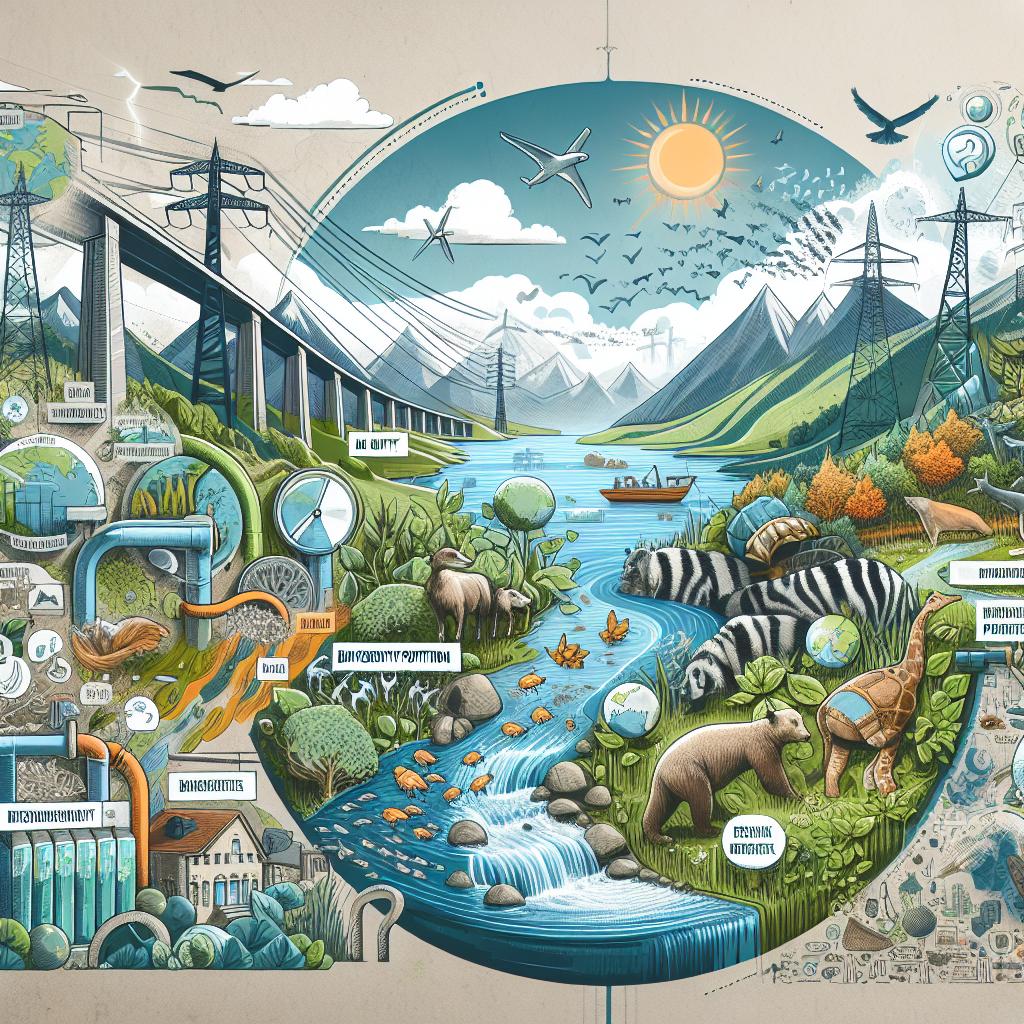Breathing Life Back into Our Planet

In an era where environmental concerns are at the forefront of global discussions, it's essential to understand the interconnectedness of various elements that contribute to a healthier planet and its inhabitants. This article delves into the impact of air quality on our health and the environment, simple ways to reduce one's carbon footprint, the importance of biodiversity and its preservation, exploring the benefits and challenges of hydroelectric power, the plight of endangered species, wildlife protection, and the connection between mental health and the natural world.
First, let's discuss the significance of clean air. Air quality plays a crucial role in our health and the environment. Poor air quality, often caused by industrial processes, transportation, and energy production, can lead to respiratory issues, heart diseases, and even premature death. Furthermore, polluted air contributes to climate change and acid rain, harming vegetation and aquatic life. By supporting clean energy initiatives, reducing personal vehicle usage, and advocating for stricter emissions regulations, we can make strides towards improving both human health and planetary wellbeing.
Next, let's talk about reducing our carbon footprint – a personal responsibility we all bear. Small actions, such as using reusable grocery bags, investing in energy-efficient appliances, and consuming less meat, can collectively lead to significant environmental improvements. Another way to minimize your carbon footprint is by supporting renewable energy sources. For instance, hydroelectric power, which harnesses the energy of moving water, is an effective and clean alternative to fossil fuels. Although it comes with challenges like altering ecosystems and displacing communities, ongoing research and technology developments aim to mitigate these concerns.
Biodiversity is another crucial component of a healthy planet. Our planet's rich tapestry of plant and animal species plays an integral role in maintaining the delicate balance of ecosystems. However, human activities like deforestation, poaching, and pollution are threatening this diversity. To help preserve biodiversity, we can support wildlife reserves, reduce our consumption of animal products, and advocate for conservation initiatives. By working together, we can ensure that future generations inherit a world teeming with diverse and vibrant ecosystems.
The plight of endangered species is a pressing concern. These unique creatures face various threats, from habitat loss to poaching and climate change. However, there's hope. Organizations like the World Wildlife Fund, Conservation International, and WCS are working tirelessly to protect endangered species and their habitats. By supporting these organizations and making small changes in our daily lives, we can make a difference.
Moreover, wildlife protection is not only essential for the survival of various species but also crucial for maintaining a healthy ecosystem. A balanced ecosystem not only ensures the availability of clean air and water but also supports human health and our overall wellbeing. By protecting wildlife habitats and supporting conservation initiatives, we can contribute to a healthier planet and, in turn, improve our mental health.
Lastly, let's explore the connection between mental health and the natural world. Ample research shows that spending time in nature can lead to improved mood, reduced stress levels, and overall better mental health. Therefore, it's important for each of us to take time to reconnect with nature – whether it's through a leisurely walk in the park, gardening, or simply enjoying the beauty of our surroundings.
In conclusion, it's essential to understand the interconnectedness of various environmental aspects and the role each of us plays in ensuring a healthier planet. By focusing on air quality, reducing our carbon footprint, preserving biodiversity, exploring the benefits and challenges of hydroelectric power, and supporting wildlife protection, we can make a difference. Moreover, reconnecting with nature and understanding the connection between mental health and the natural world can lead to personal growth and a renewed sense of purpose. Together, we can breathe life back into our planet and ensure a better future for generations to come.




